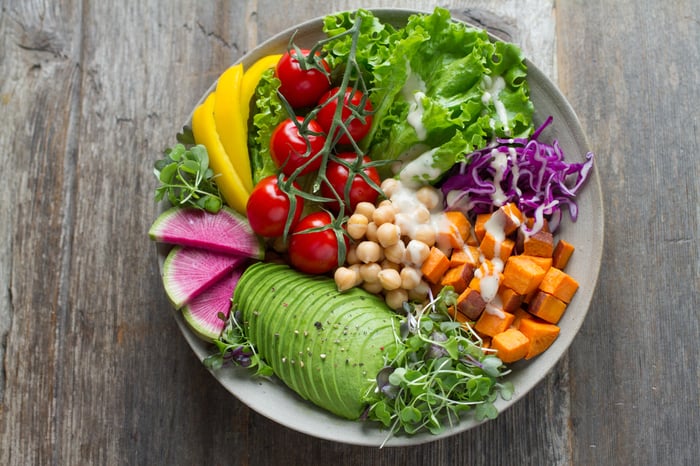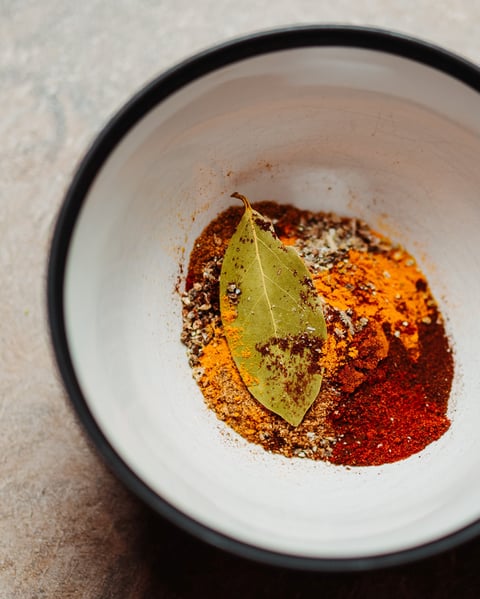
One of the major concerns while adapting to any diet is whether or not our body will get enough nutrition. When considering a vegan diet, many fear that cutting dairy, meat, and eggs from their diet will have a negative impact on their health. The common questions that arise are: How will our bodies get proper calcium? From where will we get all the vitamins? Will our bodies receive enough protein?
We need a balanced diet to maintain our immunity and ensure that we remain healthy. So, we'll discuss major nutrient sources and how you can ensure that you're giving your body the nutrients it needs. So, if you're considering a vegan diet, but have concerns about your nutritional needs, this is the article for you.
Veganism, when done right, can be both delicious and nutritious. By making use of plant-based products, we can ensure that we are eating fresh, delicious food throughout the day. The key to a successful shift to veganism is to learn some great recipes that are on the healthier side. Often times, people plunge into veganism without taking nutrition into consideration and succumb to various health issues. To avoid this, we will go over various nutrients and how to ensure you are getting enough of them in this article.
The big question: Where do vegans get their protein?
Conventionally, it has been believed that major protein sources are meat and dairy. However, this is not true. Vegans can consume protein-rich vegetables like green peas, artichokes, spinach, corn, broccoli, etc. Remember Popeye? Eating a healthy dose of spinach would not only give your body the required protein boost, it is also rich in Iron (hence the muscles), so you would get a double dose of nutrients!
You can also include legumes and pulses in your diet. They are rich sources of protein and can make your meals all the more delicious. Some grains like buckwheat, rolled oats, and quinoa are known for their protein-rich content.
By including a combination of such vegetables, pulses, and grains, you will be consuming all of the central amino acids that are the essential building blocks for proteins. The requirement for each individual depends upon their age, health, activity level, lifestyle, etc. On average, the requirement for an adult is 0.8 to 1 g of protein per kg.
What if you have an active/athletic lifestyle? Dr Neal Barnard, the founding president of the Physicians Committee for Responsible Medicine, states that yes, your body would need additional protein if you are athletic and your vegan diet will be able to meet your protein requirements. However, if concerned, you can supplement your diet with plant-based protein supplements.
Getting essential vitamins
Most of the vitamins that your body requires are easily available from fruits and vegetables, except Vitamin B12 and Vitamin D.
Vitamin B12 is essential to ensure that you have healthy nerves and blood vessels. The popular belief is that this vitamin is obtained by eating meat. However, conclusive research has been made that vitamin B12 is actually made by bacteria. The reason that B12 is associated more with animal products, is because the bacteria that produce B12 is found in the digestive tract of most animals. This B12 gets into the meat, and when this meat is consumed, you get the B12. Even humans have the same bacteria in our gut, however, scientists are not clear whether we are able to absorb it or not. Largely, it is believed that we cannot absorb the B12 produced by the bacteria in our gut as it is too far along our digestive tract to gain any substantial benefit. Many also believe that in the olden days, before everything was so sanitized, our B12 needs may have been fulfilled by the dirt that our hands or mouths would come in contact with on a daily basis as we require only 2.4 mg of Vitamin B12 per day. Of course, this is a speculation.
So, it is best to consume B12 fortified foods like plant-based milk and soy products along with supplements to ensure that you have sufficient B12 in your body. Make sure you plan your diet in a way that you take B12 rich food multiple times a day, as the B12 receptors in our body are able to absorb only about 1.5mg at a time. You would also find B12 in multivitamin tablets in quantities that your body needs.
Moving on to Vitamin D, we need it to absorb calcium and it's something you can get from sunlight! If you live in a place where there is plenty of sun, all you would need to do is get some early morning sunlight on your face and arms for 20 minutes each day. It is important to ensure, that you have not applied sunscreen, as sunscreen prevents your skin from absorbing this vitamin. If you do not get ample sunlight, it is recommended that you take a supplement for about 2000 international units (25 mcg) a day.
Read our article on essential vitamins for good health to know more!
Non-Dairy Calcium Sources
If there is no dairy how would you get calcium?
Calcium is important for the structural integrity of our bones. The human body is at its peak bone density at the age of 20, post this, our bone density gradually declines. By ensuring that we have proper calcium in our system, we ensure that our bone health is in excellent condition. We make the mistake of thinking that calcium comes from dairy. However, calcium is a mineral that is found in soil. It is absorbed by grass, and when the cow eats grass, it enters its body and thus is found in cow's milk.
So, if humans eat green vegetables: kale, broccoli, bok choy, etc. we can get calcium. The calcium found in these vegetables is more absorbable than what is in dairy. When we consume milk, we are able to absorb about 30-32% of the total calcium, the rest gets flushed out of our system. For green vegetables, this absorption rate is around 50%.
Getting access to Zinc
Studies state that vegetarians and vegans have a zinc deficiency. While there are many plant-based sources of Zinc, the absorption rate from plant-based zinc sources is much less, so in order to meet our requirement, vegans should aim for around 1.4 times the recommended RDA zinc intake. Some great sources for getting zinc are fortified cereals, wheat germ, tofu, wild rice, oatmeal, etc. The recommended zinc intake for adult men is 11mg and for women is 8mg. If your daily diet does not meet your zinc needs, you can opt for plant-based supplements.
Wholesome Diet
Now that we know this, how do we apply it to our lives? Eating a whole-food plant-based diet does more for your body than you can guess, these 4 Health Benefits of a Whole-food Plant-based Diet will help you get there.
So, what do you do to ensure you're getting all the nutrients? To make things simple, plan your meals according to the Government of Canada's guide: “The Plate Method”.








